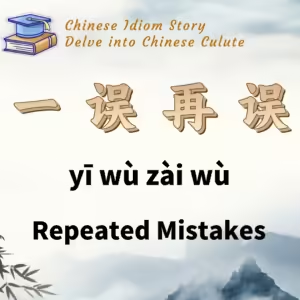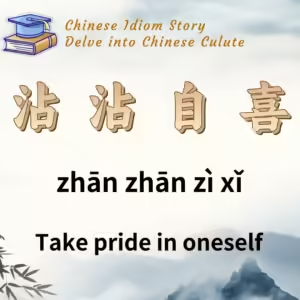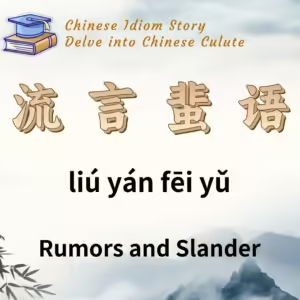
Chinese Idiom: 一误再误 (Yi Wu Zai Wu)
English Translation: Repeated Mistakes
pīn yīn: yī wù zài wù
Idiom Meaning: This idiom refers to making a mistake once and, without learning from it, making the same mistake again. “误” means error.
Historical Source: “History of the Song Dynasty · Biography of Prince Wei, Tingmei.”
Idiom Story: The founding emperor of the Song Dynasty, Zhao Kuangyin, had five brothers. The eldest and the youngest died early. After Zhao Kuangyin (Emperor Taizu) ascended the throne, his mother, Empress Dowager Du, fell seriously ill. On her deathbed, she called Emperor Taizu and the trusted minister Zhao Pu to her side. She instructed Emperor Taizu to pass the throne to his third brother, Zhao Guangyi, after his death, then to his fourth brother, Zhao Tingmei, and finally to Taizu’s own son. Zhao Pu recorded these instructions, which Emperor Taizu kept.
When Emperor Taizu was on his deathbed, he indeed followed his mother’s instructions and passed the throne to his brother Zhao Guangyi, who became Emperor Taizong. During Emperor Taizu’s reign, Zhao Tingmei was already titled Prince of Wei, and after Emperor Taizong’s ascension, he was made the governor of Kaifeng Prefecture. Zhao Tingmei was known for his arrogance and self-will from a young age, and these traits only intensified with age. He acted as he pleased, unchallenged by anyone.
Knowing his mother’s will, Zhao Tingmei eagerly anticipated the day his third brother, Emperor Taizong, would die so he could inherit the throne. Realizing that Taizong was in good health and his chances of becoming emperor soon were slim, Zhao Tingmei began to plot to seize the throne through treachery.
One day, Emperor Taizong consulted Prime Minister Zhao Pu about the issue of succession, asking whether he should pass the throne to his son or follow his mother’s wishes and pass it to his brother, Prince Wei. Zhao Pu advised, “Your Majesty, Emperor Taizu did not pass the throne to his son but to you, which was already a mistake. If you again pass the throne to Prince Wei instead of your own son, wouldn’t that be making a mistake again—repeated mistakes?”
Emperor Taizong, convinced by Zhao Pu’s reasoning, abandoned the idea of passing the throne to Prince Wei. Soon after, someone accused Prince Wei, Zhao Tingmei, of plotting rebellion. Zhao Pu suggested to Emperor Taizong, “Prince Wei harbors treacherous intentions; it would be wise to exile him to a remote area to prevent any rebellion.”
Emperor Taizong heeded Zhao Pu’s advice, stripped Zhao Tingmei of his title and exiled him to the distant Fangzhou. Not long after, Zhao Tingmei died in despondency.
Thus, the idiom “一误再误” was derived from this story, emphasizing the folly of not learning from past errors and making the same mistakes again.






